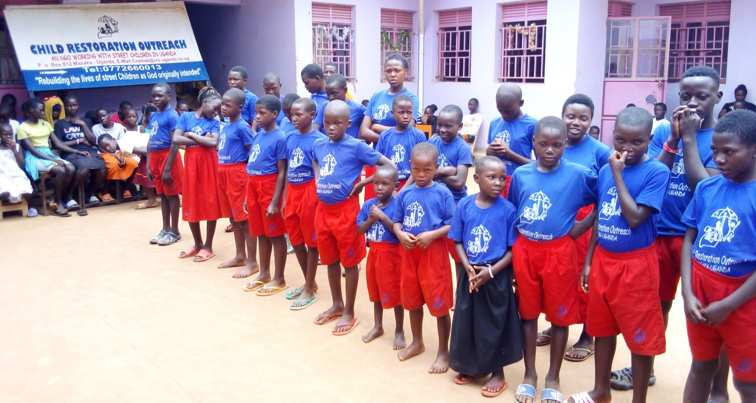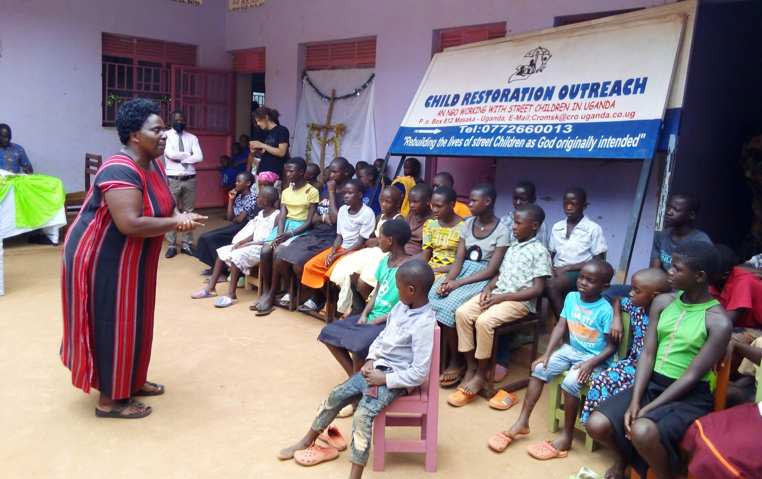
Every 12th April, the world always commemorates the International Day of Street Children to pave way of how to minimize the number of children suffering along the streets in cities.Every 12th April, the world always commemorates the International Day of Street Children to pave way of how to minimize the number of children suffering along the streets in cities.
However, its has been discovered that the increasing rates of child abuse in families has contributed to the growing number of street in Uganda and particularly in Masaka City.
Street-life is filled with harassment, cold nights, disease, child abuse, child labour, sexual abuse, hunger, lack of sanitary facilities, mob justice and crime.
Kasujja Muhammad (14 years) a P6 graduate told this e-paper that he was forced to run away from his parents home in Kiryasaka Village of Bukomansimbi District to the streets of Nyendo a Masaka city suburb because his step mum was frequently torturing him.
Muhammad, who currently survives on collecting scrap metals to earn a living, told us that he had spent one year on the streets of Nyendo town not until he was saved by Child Restoration Outreach an NGO which focuses on the transformation of the life of these children, their families and communities principally through Rehabilitation, Reintegration, Resettlement and Empowerment in Masaka city.
In Uganda, about 15,000 children between the ages of 7-17 years are living on the streets without care, parental guidance, shelter, and other basic needs of life.
Tumusiime Francis 14, a P2 graduate whom we also found at Child Restoration Outreach center in Masaka testified that he was forced to leave his parents home at Ssenyange village because of domestic violence between Mum and Dad who used to turn violent against them. He says his parent’s conduct forced some of his sisters to go for early marriages. He was also forced to stay on the streets of Masaka town not until he was adopted by Child Restoration Outreach.
Brenda Namuju 19 a resident of Misaali village on the outskirts of Nyendo suburb says she was forced to go to street at the age of 15 because of frequent abuses from her Aunt who adopted her when her biological mum died. She later got pregnant after being forced to perform tasks which were beyond her age.Brenda was helped by CRO to study a short course in hair dressing and cosmetology and was later helped to resettle at her Dad’s home.
According to Ms. Nkolenta Adah Odu the Child Restoration Outreach programs manager at Masaka center, Children and young people get on the streets due to extreme poverty, family breakdown, parental death & illness, domestic violence, famine, landslides and physical or sexual abuse.

“On the street, they're exposed to criminal activities like pick- pocketing, drug abuse, robbery, alcohol abuse, commercial sex, violence and homo sexuality - which puts their lives in danger and are forced to perform tasks beyond their ages and capabilities for survival. Living on the streetstypically avails no access to education, skills-training, health care, nutrition and parental guidance. All of this can impair brain development, negatively impacting long-term physical and mental well-being,” Ms. Nkolenta said.
She adds that most of them are found selling fruits, eggs, cassava, pan cakes etc with conditions from parents of not returning home before selling them off She says ever since schools opened after the Covid 19 Nation- al lockdown, many parents failed to take back their children to school which forced many of them to choose street life. Many of them were found selling Masks, fetching water, serving in restaurants as waitresses etc and by now 70 chil- dren have been rescued from the streets of Masaka city and they are under transformation and rehabilitation.
“Some parents also choose to deploy children on the streets to help them do some small scale businesses like selling masks then at night they sleep on verandas which negatively impacts their mental and social awareness. Other Children and Youth drop out of school to support their families and never go back,” she said.
PHOTOMoreen Najjumba (10) P3 and Maria Goreti Naginda (6) P1 who were found selling tomatoes and rescued by Child Restoration Outreach from Masaka streets after the death of their Father. Their Mother cannot sustain their education and daily needs. Although CRO helps to break down the barriers that keep street children in schools from primary through secondary and tertiary institutions by getting a good education, including scholarships, skilled training and more, some government schools which are supposed to provide free education for all charge very high school dues.
In line with Uganda government policies, CRO does not institutionalize children, but assists them to get rehabilitated, educated and reintegrated within their extended family lines as a long-term strategy. This has proved to be a “good practice” for the street children because the children have to take their own decisions to quit the streets.


